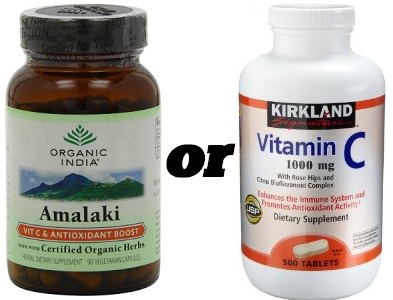
The UK and the US have a lot in common and aside from our accents, outsiders looking in would probably say that we are pretty much the same. Yet within our similarities there are many astounding differences which brings rise to the phenomenon of things which are different but the same.
In the US they call the item of outwear with two legs ‘pants’ while the British will call them ‘trousers’. ‘Pants’ to the British means underwear. What Americans refer to as ‘chips’ the British call ‘crisps’ with ‘chips’ for the British being what American’s call ‘french fries’. Confused yet?
Taking the example of chips/crisps/french fries, the are the same in that they are all potato based products but remain significantly different. The average person is more likely to want a side of french fries with their steak rather than chips.
In this way there is a certain amount of confusion about supplementation in hair care, herbal vs vitamin supplements. Are they the same or are they different?
I wrote an article some time ago outlining my reasons for why I believe that we should tread carefully when choosing to supplement with vitamins but I received a few emails shortly afterwards pleading the innocence of some vitamins to my charges.
It’s important to state here that everyone’s body chemistry is different so there is no hard and fast rule on what is suitable or even ideal levels of supplementation. That can only be found by wary experimentation after consulting a physician depending on personal circumstances.
Even though there are many similarities between vitamin and herbal supplements, there are distinct differences that I believe make herbal supplements* superior and worth exploring as an option to enhance your hair growth efforts.
Why the change of tune I hear you ask? Actually I haven’t changed my mind about vitamin supplements* at all, I still believe and the studies have proved that over the long term most of them are at best useless and at worst a detriment to your health. Herbal supplements on the other hand are quite different.
 The main issue that I have with vitamin supplements is the same reason that dietitians will tell you not to eat white sugar, white flour or free oils.
The main issue that I have with vitamin supplements is the same reason that dietitians will tell you not to eat white sugar, white flour or free oils.
It is because these products are highly refined and concentrated versions of the original foods containing them in nature.
For instance, vitamin C supplements contain vitamin C* and a few fillers while an average orange contains vitamin A*, B1, B2, C, A, Niacin, Potassium, Magnesium, Calcium, Iron, Selenium, Copper & Zinc among others.
By eating an orange instead of a vitamin C* pill, you are getting the vitamins in the combinations and concentrations as found in nature as opposed to the single vitamin in a supplement.
Herbal supplements are not a modern invention as they have been used to some degree by multiple cultures around the world for centuries. Many of us have heard about taking Flaxseeds to lower cholesterol or Echinea for colds and even though herbal supplements* are not regulated by the FDA, they do have the benefit of thousands of years of use.
What makes herbal supplements different in my book, is that depending on their quality, they are generally comprised of a single or a combination of herbs which have been dried and compressed into a supplement. Essentially you get the benefit of the entire plant.
Some herbs may be cooked and the juice separated from the pulp before the liquid is dehydrated and packaged into easy to swallow supplements. In either case, what makes them different from vitamin supplements* is that there is rarely any forcible or chemical extraction of individual vitamins or minerals contained within the plant.
So what does this mean if you want to try supplementing? Well the best and perhaps the safest way is to take a leaf out of the Ayurvedic medicine book which has been around for about 5000 years.
You can leverage the knowledge given to us by Ayurveda or other cultures by utilizing herbal supplements that contain Bhringaraj (Eclipta Alba), Amalaki fruit, Brahmi leaf, Saw Palmetto or Hibiscus flower or a combination of these which are often used to help grow thick strong hair.
Remember that whatever you put in your body is going to have an effect, either positive or negative and either in the short or long term. But based on the evidence, if you are already healthy and not deficient in any vitamins or minerals, I would say that a herbal supplement for hair growth would be the least likely to cause you trouble in the long term.
What are the names of the herbal supplements because I only know about vitamin
I have a hard time swallowing large pills capsule I can get down kinda easy sometime .
I find that vitamins are a lot more effective depending on the season you take them. They are a lot more effective for me in spring and summer. Do you find the same?
Detox, Drink water daily, eat Healthy, stay away from meats, & exercise often. I promise you won’t have to buy another hair growth vitamin& not only will your hair grow your body & skin will look & feel better as well. Be consistent & you’ll reach any goal you have for yourself. God Bless .